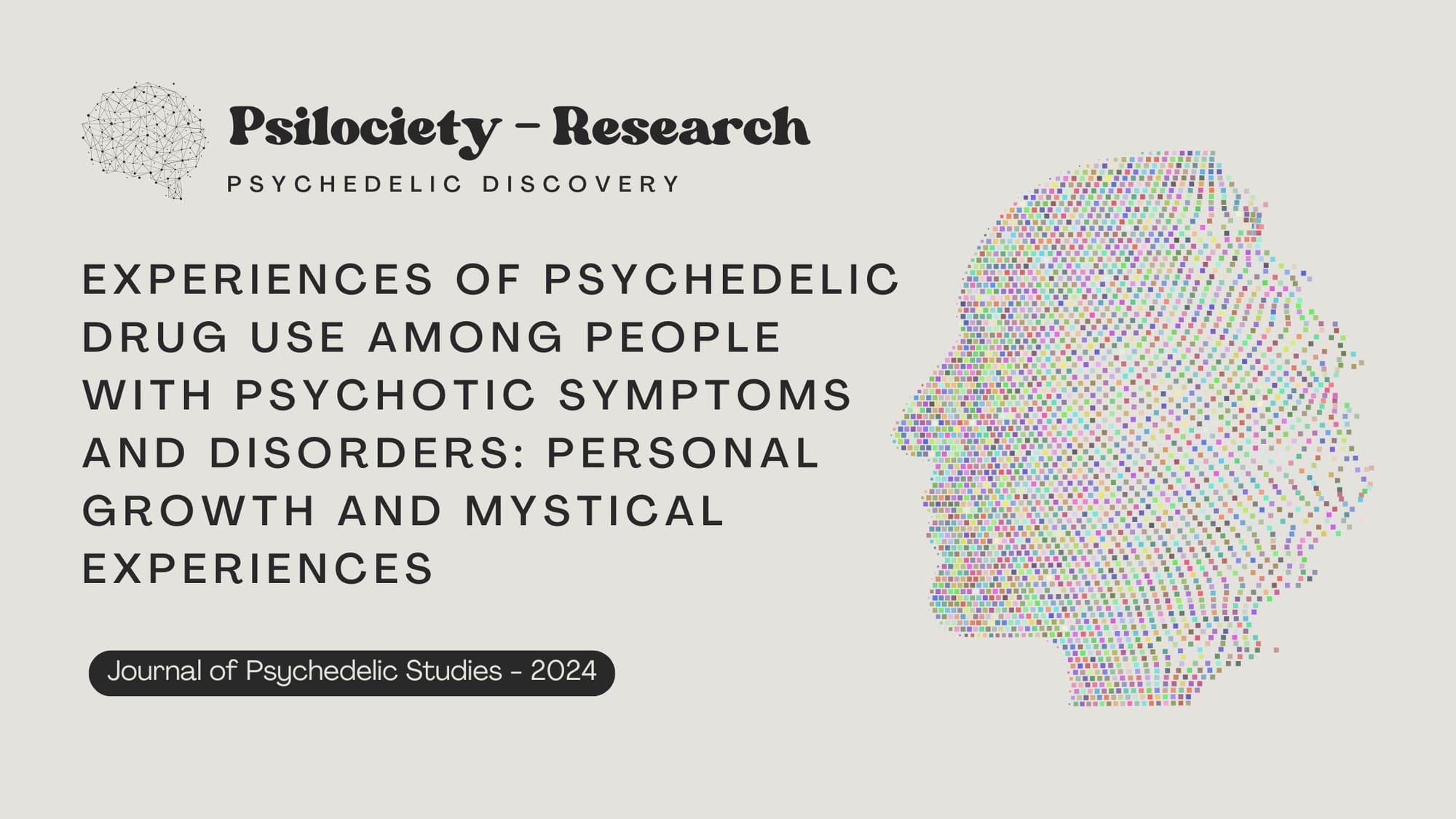Experiences of Psychedelic Drug Use Among People with Psychotic Symptoms and Disorders: Personal Growth and Mystical Experiences
A study reveals potential benefits and risks of psychedelics for individuals with psychotic disorders, emphasizing personal growth and mystical experiences.

Title & Introduction
- Paper Title: Experiences of Psychedelic Drug Use Among People with Psychotic Symptoms and Disorders: Personal Growth and Mystical Experiences
- Published In: Journal of Psychedelic Studies, 2024
- Authors: Joseph T. La Torre, Jade Gallo, Mehdi Mahammadli, Daniel Zalewa, and Monnica T. Williams
- Objective: To explore the outcomes of psychedelic use among individuals with psychotic symptoms or disorders, focusing on personal growth, mystical experiences, and associated mental health effects.
- Importance: This study addresses a significant research gap by examining the effects of psychedelics on a population often excluded from psychedelic-assisted therapy studies due to assumed risks.
Key Background Information
- Context: Despite increasing interest in psychedelic therapies, individuals with psychotic disorders are typically excluded due to concerns about exacerbating symptoms, though evidence supporting this risk is minimal.
- Hypothesis: Psychedelic experiences can result in personal growth and mental health benefits, even among those with psychotic symptoms, under certain conditions.
Methodology
- Study Design: Mixed-methods, cross-sectional, retrospective survey.
- Participants: 100 individuals (ages 18-62, average age 28.5), all with a history of psychotic experiences or disorders.
- Intervention/Exposure: Participants self-reported on a single memorable psychedelic experience using substances like psilocybin, LSD, or others, including dosages and settings.
- Controls: None (naturalistic and retrospective design).
- Duration: Data was collected over approximately nine months.
Key Findings
- Primary Outcomes:
- 88% of participants reported some level of personal growth following their psychedelic experience.
- Mystical experiences, as measured by the Mystical Experiences Questionnaire-mini (MEQ-mini), had an average intensity score of 7.1/10.
- 67% reported increased spirituality or contemplation.
- 51% gained new insights into past events or traumas.
- Significant improvements in feelings of love, appreciation, and resilience were commonly noted.
- Secondary Outcomes:
- 11% reported entirely negative experiences, including symptom exacerbation or distress.
- Mixed outcomes often involved both positive insights and adverse effects.
Interpretation & Implications
- Conclusion: Psychedelic experiences often yielded personal growth and mental health benefits for individuals with psychotic symptoms. However, the context of use (e.g., setting and co-use with other substances) played a crucial role in outcomes.
- Implications: With appropriate safeguards, psychedelic-assisted therapy might be a viable treatment for this population. However, clinical trials are needed to establish safety and efficacy.
- Limitations: Self-reported data, lack of diversity in the sample, and potential memory biases were noted as limitations. Additionally, settings for psychedelic use were uncontrolled, impacting generalizability.
Summary & Takeaways
- Key Takeaway: Psychedelics have the potential to support personal growth and alleviate symptoms for individuals with psychotic disorders, but require cautious application.
- Practical Application: Future research should focus on controlled clinical trials to validate the findings and create tailored protocols for this vulnerable group.
Researchers & Publication
- Researchers: Joseph T. La Torre, Jade Gallo, Mehdi Mahammadli, Daniel Zalewa, and Monnica T. Williams
- Publication: Journal of Psychedelic Studies, 2024
- Study URL: https://doi.org/10.1556/2054.2024.00348

